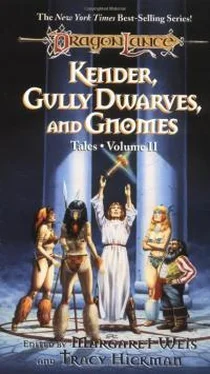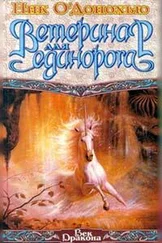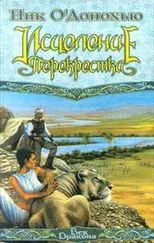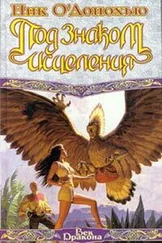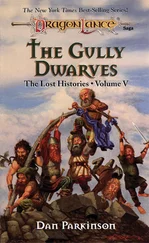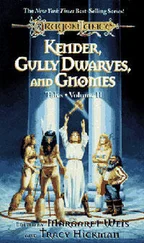Ник О'Донохью - Kender, Gully Dwarves, and Gnomes
Здесь есть возможность читать онлайн «Ник О'Донохью - Kender, Gully Dwarves, and Gnomes» весь текст электронной книги совершенно бесплатно (целиком полную версию без сокращений). В некоторых случаях можно слушать аудио, скачать через торрент в формате fb2 и присутствует краткое содержание. Год выпуска: 1987, Жанр: Фэнтези, на английском языке. Описание произведения, (предисловие) а так же отзывы посетителей доступны на портале библиотеки ЛибКат.
- Название:Kender, Gully Dwarves, and Gnomes
- Автор:
- Жанр:
- Год:1987
- ISBN:нет данных
- Рейтинг книги:5 / 5. Голосов: 1
-
Избранное:Добавить в избранное
- Отзывы:
-
Ваша оценка:
- 100
- 1
- 2
- 3
- 4
- 5
Kender, Gully Dwarves, and Gnomes: краткое содержание, описание и аннотация
Предлагаем к чтению аннотацию, описание, краткое содержание или предисловие (зависит от того, что написал сам автор книги «Kender, Gully Dwarves, and Gnomes»). Если вы не нашли необходимую информацию о книге — напишите в комментариях, мы постараемся отыскать её.
Kender, Gully Dwarves, and Gnomes — читать онлайн бесплатно полную книгу (весь текст) целиком
Ниже представлен текст книги, разбитый по страницам. Система сохранения места последней прочитанной страницы, позволяет с удобством читать онлайн бесплатно книгу «Kender, Gully Dwarves, and Gnomes», без необходимости каждый раз заново искать на чём Вы остановились. Поставьте закладку, и сможете в любой момент перейти на страницу, на которой закончили чтение.
Интервал:
Закладка:
As a tribute to Raistlin—a genuine tribute, knowing his understanding and merciful nature—Armavir includes within this stanza another clue as to the cruel exclusion of the poet from the Chronicles . Line 83,
Where the abstract stars hide a nest of words,
should be noted, for the pun on “stars” takes in the meaning of “celebrities,” and six of the nine celebrities of the Chronicles (I exclude Sturm and Flint and, Dear Reorx! I exclude Raistlin) have done their best to hide the “nest of words,” the poet who was the birthplace of the story [32] Obviously, the line also refers to the abandoned “Star Wires”
.
Line 92: A graceless girl, graced beyond graces.
The lovely, the fickle Tika. Armavir saw her first, as a very young girl who worked hours far too hard and long for her tenderness. Closely he watched her grow and blossom into the beautiful woman she was to become (see note to lines 46-50).
Well, as a young girl might, she went for the muscles, for the job security, instead of the immortality bestowed by the poet’s pen. Tika, the wedding song [33] Chronicles , I, pp. 436-437.
was for us, sold at the last moment for a pittance to Goldmoon and Riverwind, when it became clear that in your eyes we were not to be! If you ever read this, return to me, forgiven of all adolescent attachments and your part in the conspiracy that left the poet’s name unsung! This chamber is bathtub unto itself, my dear, my dove, and my eyes are keyholes!
Line 93: A princess of seeds and saplings, called to the forest.
Laurana. Why Tanis would throw over a number like Kitiara for this little one was beyond Armavir, is beyond me (and an incident before the siege of the High Clerist’s Tower was conclusive evidence: see notes to lines 46-50). Of course, humans age a lot project: a quest that, it should be evident, the poet never entirely forgot. more quickly than elves, and though Kitiara was impressively arrayed, Tanis might have been enough of an elf to look toward the long run. I don’t think the decision was political, like the self-righteous little farewell note maintains. In fact, I cannot see how Tanis could even have made that decision—indeed, any decision—without consulting his accompanying skull or using (without payment or gratitude) Armavir’s considerable ghostwriting skills.
Line 94: An ancient weaver of accidents.
Fizban. Although not entirely unsympathetic, his was a figure blown completely out of proportion by the tendency of many of the Heroes to mythologize. Though far too taken in by Tasslehoff’s deceptive charm, apparently he was a shrewd old con artist himself, managing to parlay a standard “wise old man” image and an equally standard (but cleverly engineered) disappearance and reappearance into a claim of godhood and, no doubt, all the benefits that might accrue from such a position, while conveniently missing most—if not all—of the danger.
About that disappearance: it has never been emphasized enough that Tasslehoff was the sole witness of the mysterious event; whenever it has been mentioned, the reliability of the source has (incredibly) never been questioned. Perhaps the greatest accident Fizban wove was his own.
I always thought that the little speech he gave at the end of the war (quoted at the end of the Chronicles ) was rather lame: all that theological clap-trap did nothing but give the surviving Companions an inflated sense of their own self-importance (which, I suppose, is what mythology is for, and why they were so willing to enshrine him on the spot). But from his story we can draw one valuable lesson: sometimes an important individual drops out of a tale, out of history, through accident or design, but given time and the continual hunger for truth, he shall return with an immortality won by his own cleverness, his own ingenuity. It is the tale of the poet in brief, of the true “weaver of accidents,” if I have ever heard that tale spoken.
Line 95: Nor can we say who the story will gather.
Often taken to be a grammatical error on the poet’s part, a line that should read “Nor can we say whom the story will gather.” Not true at all! It was Armavir’s last insurance, his last hedge against oblivion!
For the line, as printed, means grammatically, “Nor can we say who will gather the story” The final version of the poem, marred by the neglect or ill intentions of the chroniclers, proves Armavir a prophet.
V.
Conclusion
Spared again, as the waters of the cell begin to recede (could it, perhaps, be Raistlin’s taunting, toying with me over the years and the miles, over Reorx knows what boundaries, for a comment made only in jest? If so, I am properly instructed, and beg forgiveness. Or could it all have been an illusion of light and onyx, a damaged memory from a damaged childhood?).
True to his premonitions, the poet fell from the story. In the interest of truth, I have returned him. For this service I ask only a small reward: that my name shall be remembered as his, and that the day shall come when pseudonyms are things of the past, and those who were truly at the heart of the story shall be remembered and revered, their names echoed throughout the upper world, through helmets in the vallenwoods, through the memories of all decent folk, gnomish or otherwise, and finally, that something can be done about these faucets.
These things I ask for, and also that a sizeable sum of money be sent to the address I enclose with the manuscript, for I have more to say, and to adopt the common misreading of line 95 of the “Song,”
Nor can we tell whom the story will gather.
Dagger-Flight
Nick O’Donohoe
I
It woke in warm darkness. A musical voice, not quite deep and not quite high, spoke. “I’ll get it for you.”
The weight rocked.
A higher, childlike voice said almost sadly, “No. I don’t want it back. You can never get rid of the smell, you know.”
The weight settled. Something wet and thick was dripping around it, seeping a little at a time in through tiny pits on the blade. “Blade,” it thought, half-asleep. “I have a blade.”
And a moment later, more sharply, “I taste blood.”
The blood was rank and bitter, laden with strange salts. The thing knew, without knowing how, that it had tasted better blood than this—better than this goblin blood.
As more dripped on the blade, it suddenly thought clearly, “I’m a dagger. I’m a dagger, stuck through a goblin’s heart.”
A new voice that seemed to come from everywhere laughed, each word chiming like a falling icicle.
Poor pet. You hardly know yourself . And it laughed again.
Though the voice sounded as if it could be anything—rock, corpse, wind, or weapon—the dagger thought of it as “she.”
You can’t see yourself, can barely feel yourself, and don’t know yourself at all . Her voice showed casual contempt for weakness. You’ve only just fed, and it wasn’t very good, was it? She purred, soon you will feed again, perhaps many times .
The dagger quivered with pleasure and fear; something about that voice ... As the dagger moved, the surface of the congealing blood broke, and fresh drops fell all the way to the cross-piece. “Cross-piece,” it thought uncertainly. “I must be a dagger.”
The voice, colder than goblin corpse, said, I hinted that you were not. Many have mistaken you for a dagger more times than you can dream of. Fools have died for that .
The dagger strained to hear more, its slow mind uncomprehending. Movement was harder as the flesh around it stiffened.
Читать дальшеИнтервал:
Закладка:
Похожие книги на «Kender, Gully Dwarves, and Gnomes»
Представляем Вашему вниманию похожие книги на «Kender, Gully Dwarves, and Gnomes» списком для выбора. Мы отобрали схожую по названию и смыслу литературу в надежде предоставить читателям больше вариантов отыскать новые, интересные, ещё непрочитанные произведения.
Обсуждение, отзывы о книге «Kender, Gully Dwarves, and Gnomes» и просто собственные мнения читателей. Оставьте ваши комментарии, напишите, что Вы думаете о произведении, его смысле или главных героях. Укажите что конкретно понравилось, а что нет, и почему Вы так считаете.
